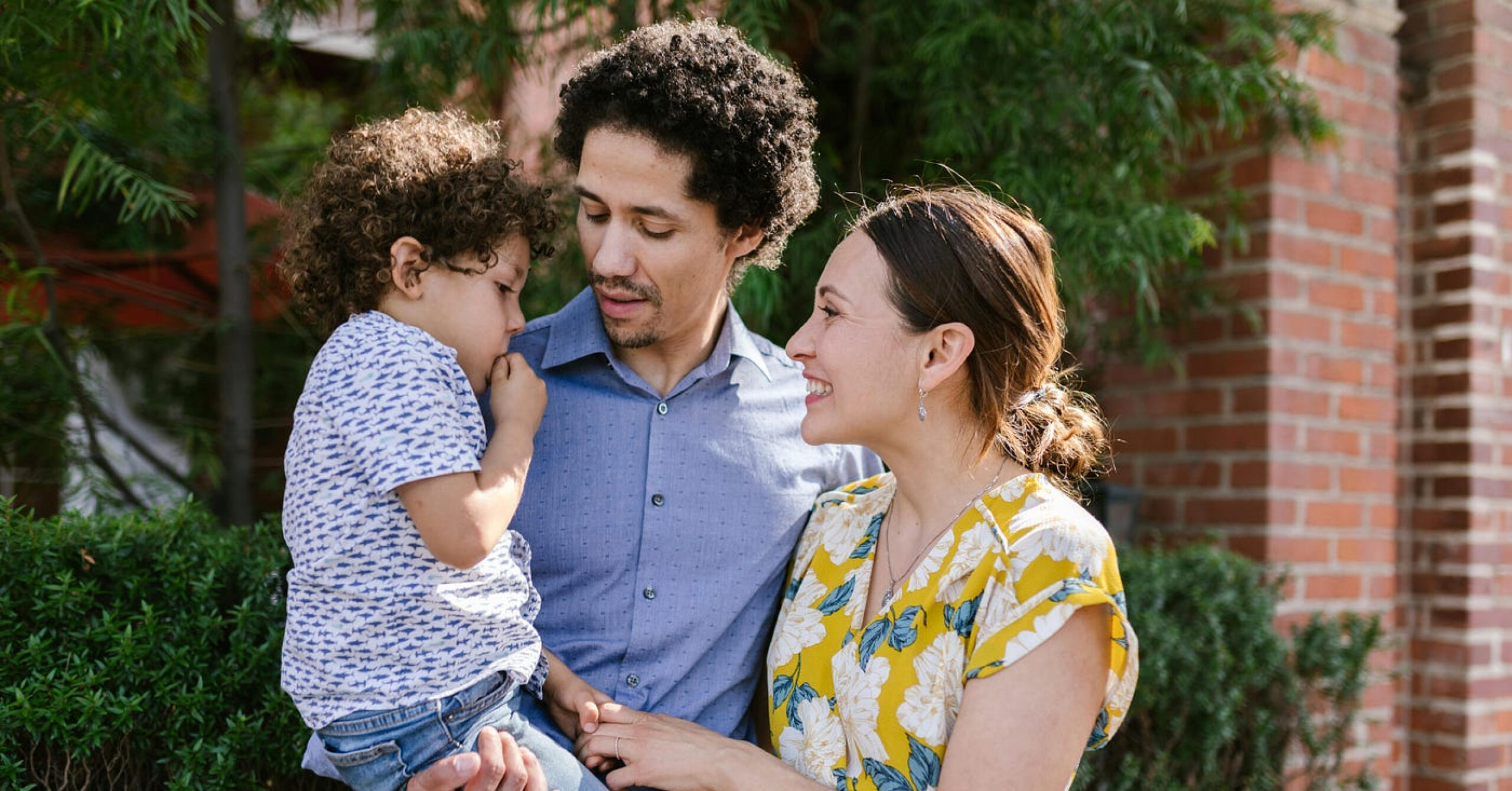By Jane McWilliams
As parents, we try to protect our kids from undue stress. But the reality is that life is inherently stressful. While we may not be able to protect our kids from all stress we can help them learn to cope and adjust.
Conflict between parents is the first major stressor many children experience. The bad news is that when you experience stress and conflict, your kids know it and can suffer stress as well. The good news is that there are ways for you and your co-parent to help your kids cope and adjust to the stress they experience.
At The Aurit Center for Divorce Mediation, our mediators guide you both through the process of reaching agreements and developing a well-structured parenting plan that sets you up for successful co-parenting, now and into the future. Whether or not you are currently going through a major transition, we recognize that parenting from two homes is challenging.
We believe that it is essential to help you help your kids cope with their feelings and adjust to changing circumstances as easily and quickly as possible. To support you, we light your path forward and provide support every step of the way.
To help your kids cope and adjust, we offer the following tips to support you and your co-parent through your journey to healthy co-parenting.
1 / Keep Conflict Low
First and foremost, keep conflict low. The strain of conflict between parents damages their self-esteem and sense of security. Research shows that children are resilient, so long as they perceive their parents resolving their conflict. Thankfully, when co-parents learn to communicate and collaborate in a healthier way, their children do not have to carry the burden of their parents’ discord. Professional mediators can help you and your co-parent have respectful conversations and focus on your children’s best interests.
Instead of reacting defensively to each other you can give thoughtful consideration to all of your options and develop thoughtful proposals that your co-parent can accept. As a result, your kids are more easily able to cope and adjust because this type of collaboration reduces their stress.
To help keep stress low for your kids, do not disparage your co-parent. When kids hear negative remarks about a parent they can internalize the remarks and question their self-worth. They may ask whether they are expected to align with or “stand up for” one parent against the other—consequently causing them to face torn loyalties and the related stress. You protect your kids when you refrain from making disparaging remarks about their other parent. If you need to ‘blow off steam’ about your co-parent, make sure your children are not exposed to that conversation.
When co-parenting conflict is about the kids—especially those under the age of 7—often think they are at fault and the cause of the conflict. Be mindful of whether or not your children can hear conflictual conversations, and remind yourself that they are likely already blaming themselves for some of the conflict. Reassure your kids that they are not to blame and that they are doing everything they are supposed to be doing.
2 / Be Ready to Respond
Be prepared to answer your kids’ questions and to help them understand their emotions. If possible, coordinate as co-parents to provide consistent messages, answers, and support for your kids. Develop a mutual story about why you are separating. Be honest with your kids, but do not feel that you must share details. Simple and easy to understand statements are best.
When your own emotions are triggered, take the time you need to be calm and to put your reaction aside. Remaining calm will allow you to focus on formulating a response that provides your kids with a sense of stability and security.
When your kids are struggling to cope or adjust, you have the opportunity to help them express their emotions in a healthy way and to rely on you for support. It is important that you validate whatever feelings they are experiencing. This can be tough! When it comes to our kids, we have an instinct to protect, and it is critical that we don’t dismiss their feelings because of our own discomfort. Listen carefully to how they are feeling, no matter how difficult it is for you to hear. Let them know that these ‘big emotions’ are normal and that your family will get through this transition together.
For Example:
Oliver, who is 7 years old, is at his Dad’s house for the first half of the weekend. Oliver’s Dad notices his son is not his usual rambunctious self.
Dad: “You seem very quiet today. Can you tell me why?”
Oliver: “I feel sad. You and mommy don’t love each other anymore, and I miss us all being a family.”
Dad instantly feels that statement like a punch, as it triggers his own feelings about the divorce and confirms his fear that his son is struggling to cope and adjust. Dad puts on a great big smile and picks up his sons and says:
Dad: “Well, that is just silly. We both love you. Now let’s play a video game.”
Unfortunately, Dad just missed an amazing opportunity to help his son develop his emotional intelligence. Instead, in response to hearing about his son’s pain, he tried to immediately ‘solve it’ by avoiding it and distracting his son with a video game.
While we can understand this parent wanting to protect his son from feeling sad, we can easily see that this leaves the son to try to sort out complicated emotions independently and teaches him to respond to feelings by turning away from them.
If, instead, Dad puts his own reaction aside, he has the opportunity to validate his son’s feelings and to show him that discussion around difficult feelings is okay. He can then offer some suggestions about coping with those feelings and show his son that although he and his son’s mom are no longer together, they still want the best for each other and their son.
So, instead, Dad could say:
Dad: “It’s okay to feel sad, and I know it is hard when you miss us. I’m so glad you told me how you are feeling. Would you like to color a picture that we can give to Mommy when she picks you up?”
You can help your kids adjust by preparing yourself for conversations like this one. When you thoughtfully listen and validate your kids feelings, no matter how uncomfortable they make you feel, your kids can more easily adjust and will learn how to manage their emotions in a healthy way. Here, Dad suggests coloring a picture for Mommy, which positively reinforces their son’s relationship with his Mom. This is exactly what kids need to feel secure and to more easily adjust.
3 / Provide Consistency
Children feel safe and secure when their lives have some structure, consistency, and routine. Even the simplest daily routines help children to feel safe, knowing they can predict what comes next.
The good news is, when you are parenting from two houses, you can still provide consistency for your children. Developing a detailed parenting plan is invaluable to do so. Your mediator will help you identify each and every area where you can provide consistency and they can help you build a parenting plan that best supports your children.
Depending upon your children’s ages, consistency will look very different. For younger kids, you will want to ensure that they see both parents frequently and that you are following some of the same daily routines, such as their ‘getting ready for bed’ routine each night. For older kids, who are likely busy with their friends and activities, you may have longer periods between each parent’s parenting time, but you can use technology to maintain daily communication and help ensure that they too have routine and structure. Of course, whether from one house or two, things don’t always go as planned, but if you both generally provide a similar daily experience for your kids, they will greatly benefit.
Here are some examples of ways to create consistency when parenting from two homes:
- Establish a bedtime routine of Facetime calls to say goodnight to both parents.
- Refer to yourselves as “TEAM [child’s name]” and have a special handshake for pick-up and trade-off times.
- Establish Household Ground Rules or matching Chore Charts for both houses.
- Make up a silly jingle that helps your kids remember and adapt to their weekly new schedule, ex. “Monday, Tuesday, Wednesday we hang with Dad, Thursday and Friday with Mom, weekends we switch off every other week, this is our schedule song.”
- Communicate, Communicate, Communicate. Without frequent and open communication with your co-parents, your kids will quickly learn how to manipulate the situation to their benefit. In addition, kids experience a sense of continuity when their parents share all child-related information and support each other’s decisions.
Periods of adjustment are difficult for everyone. It is important that you take care of yourself and be patient with yourself, your co-parent, and your kids. Life is dynamic and requires that we all learn to adjust and adapt continually. By keeping conflict low, helping your kids with their questions and emotions, and providing some consistency, you and your children will adapt to your “new normal” before you know it.
The Aurit Center for Divorce Mediation believes in putting children first and helping parents develop parenting plans that do just that. Our thorough parenting plans address Parenting Time, Child Support, and Legal-Decision Making. If you and your co-parent need help to move in the right direction, we are here to light your path forward. We will partner with you to help ensure that your kids can adjust as easily as possible. To learn more, please visit The Aurit Center Resource Page or call us at 480-568-6231.





